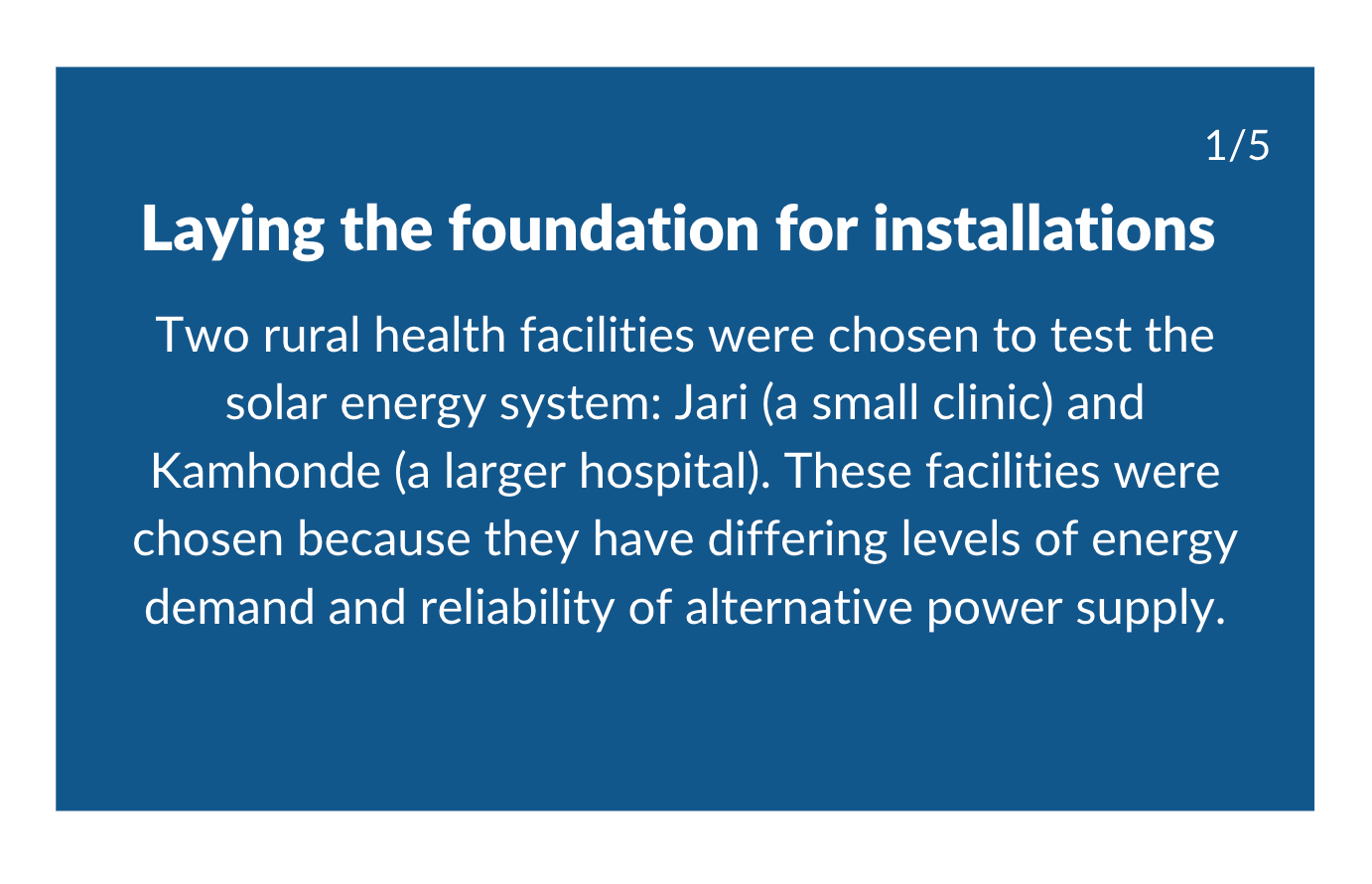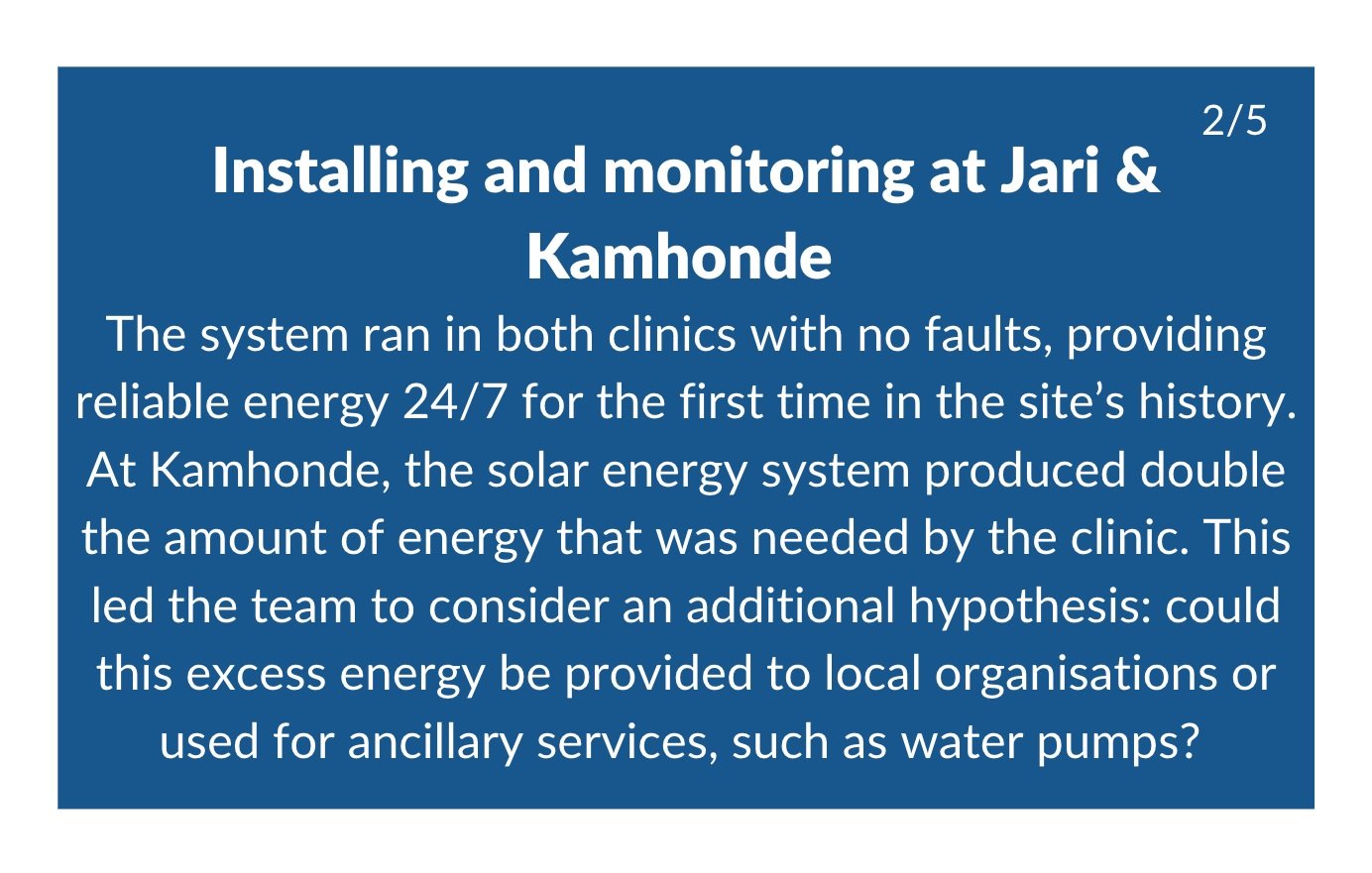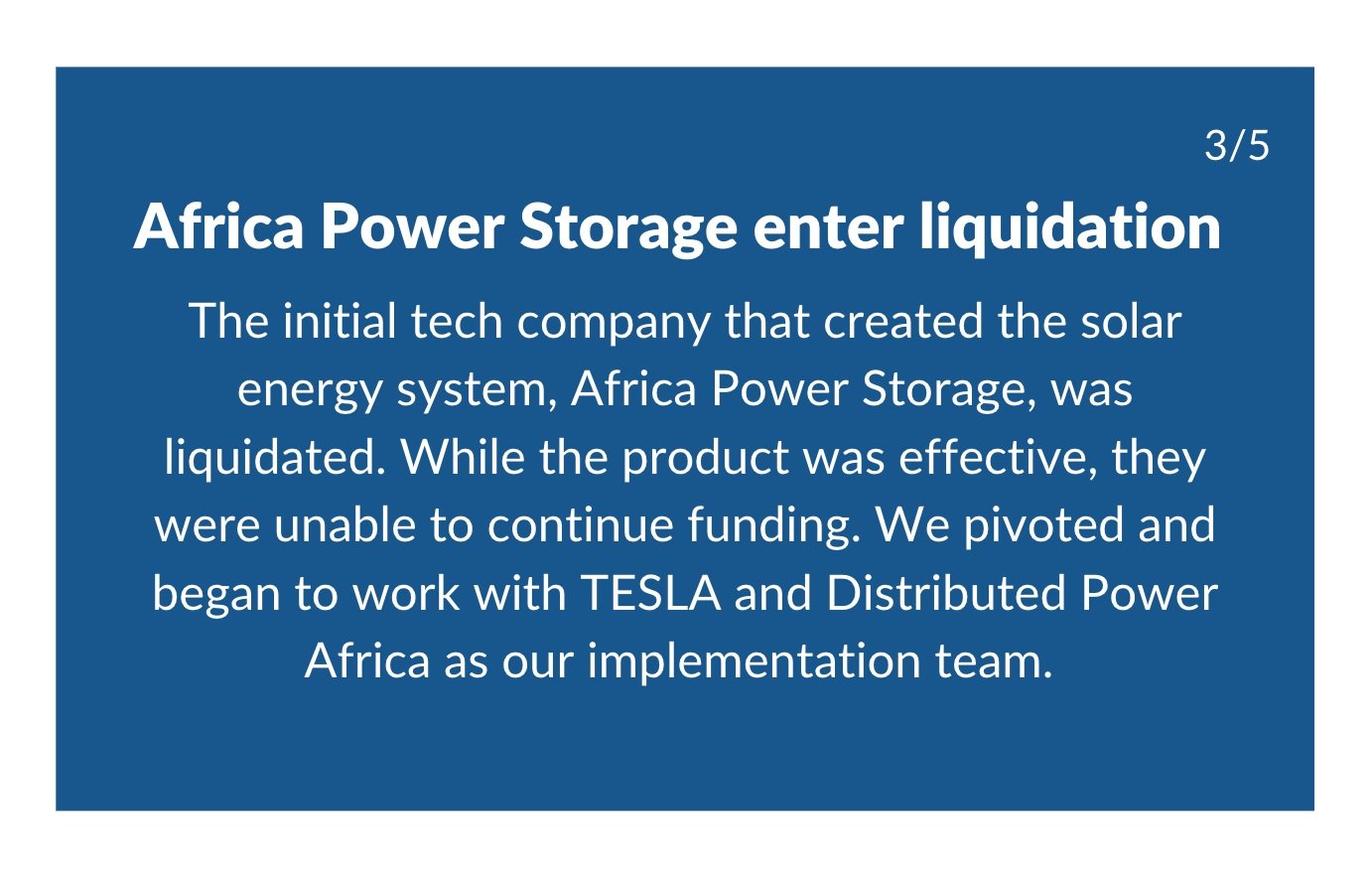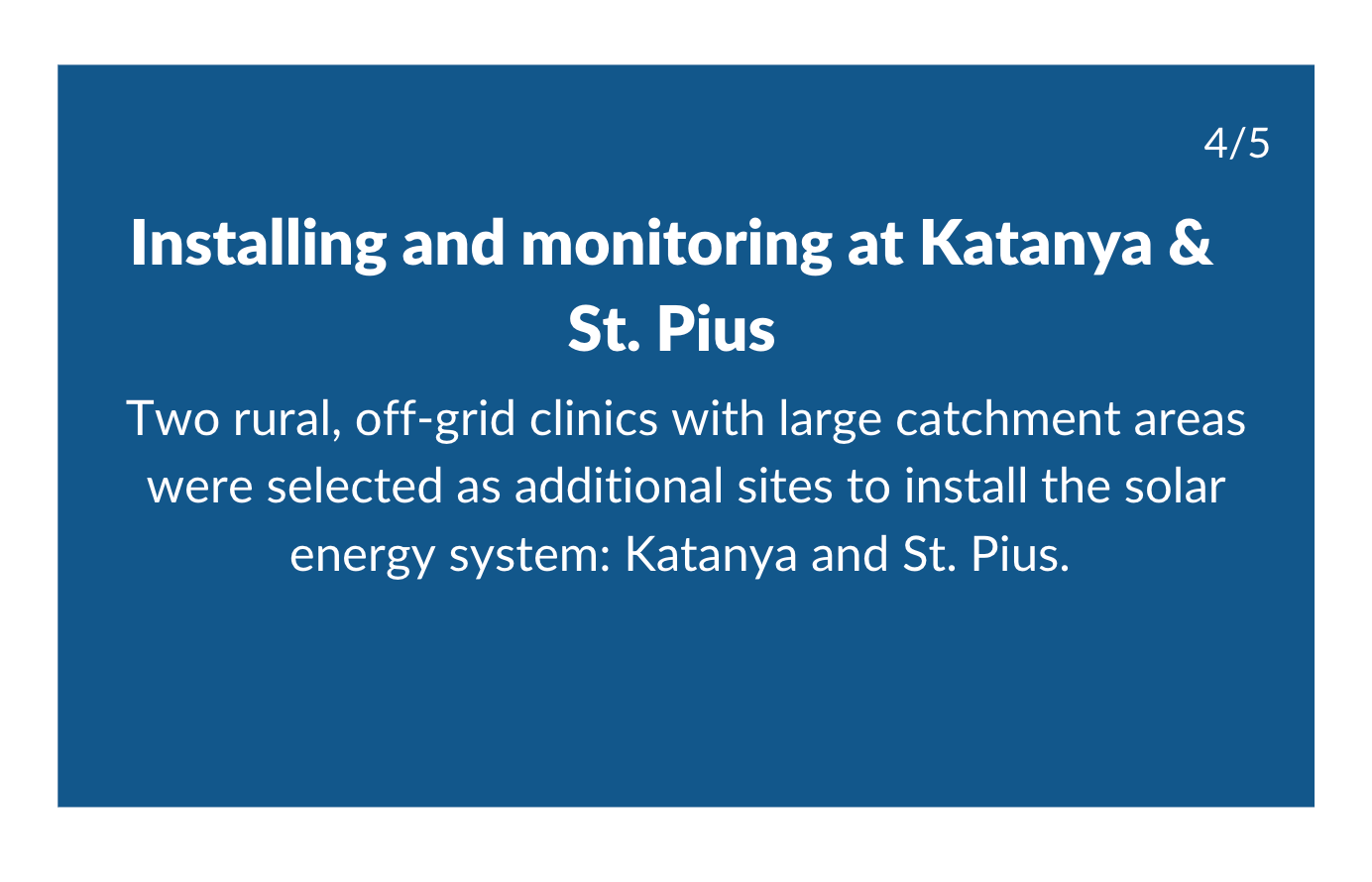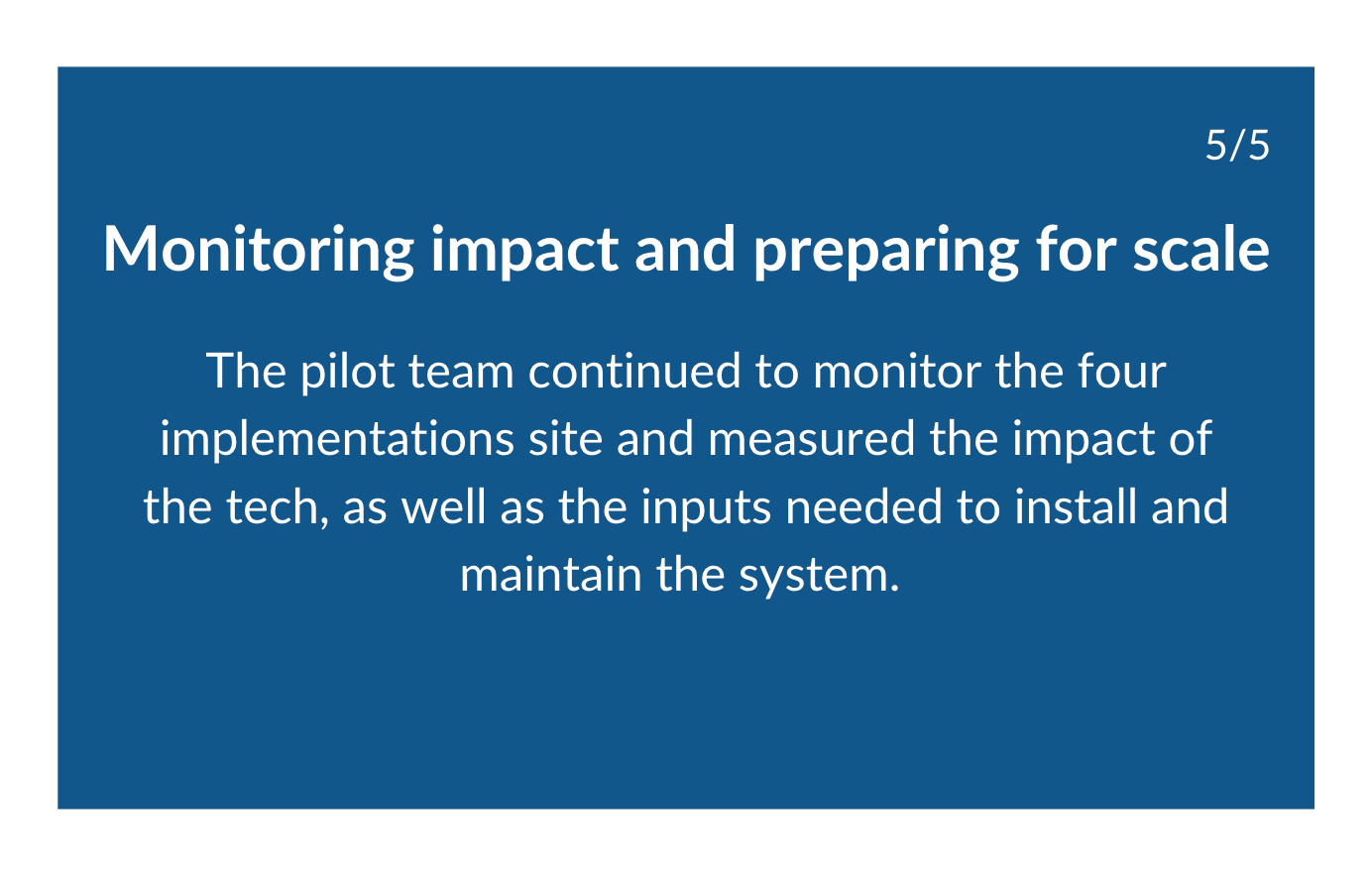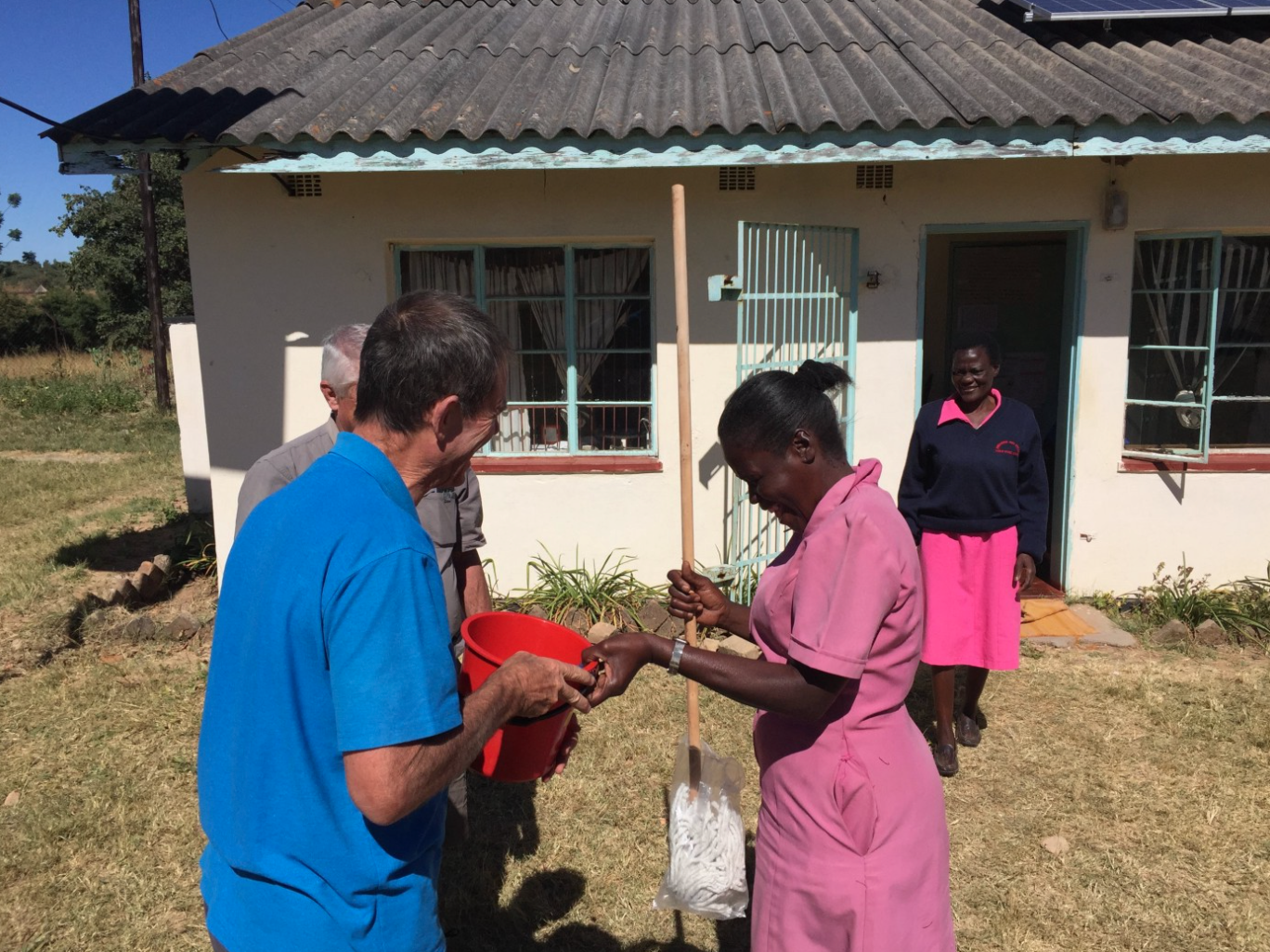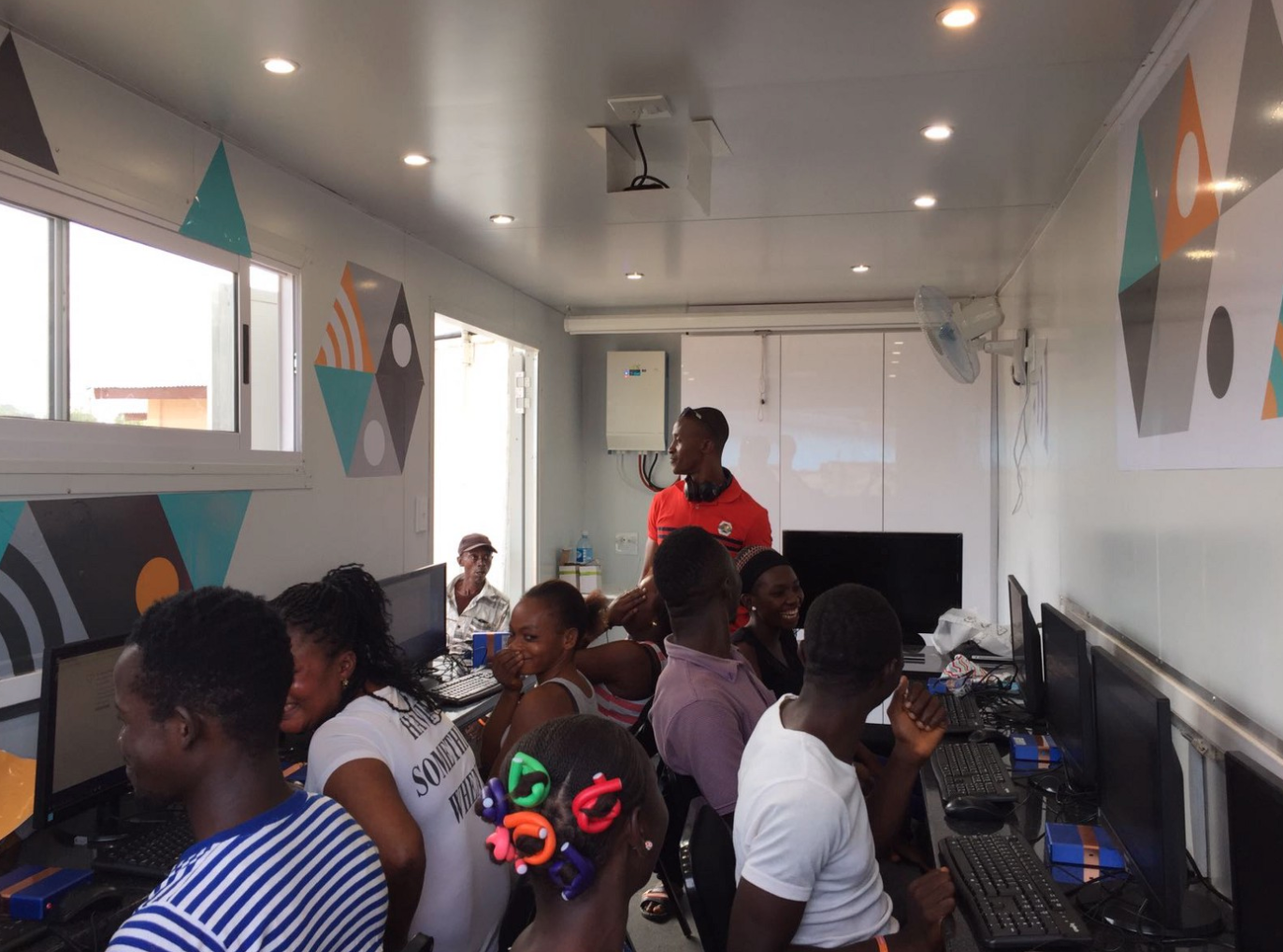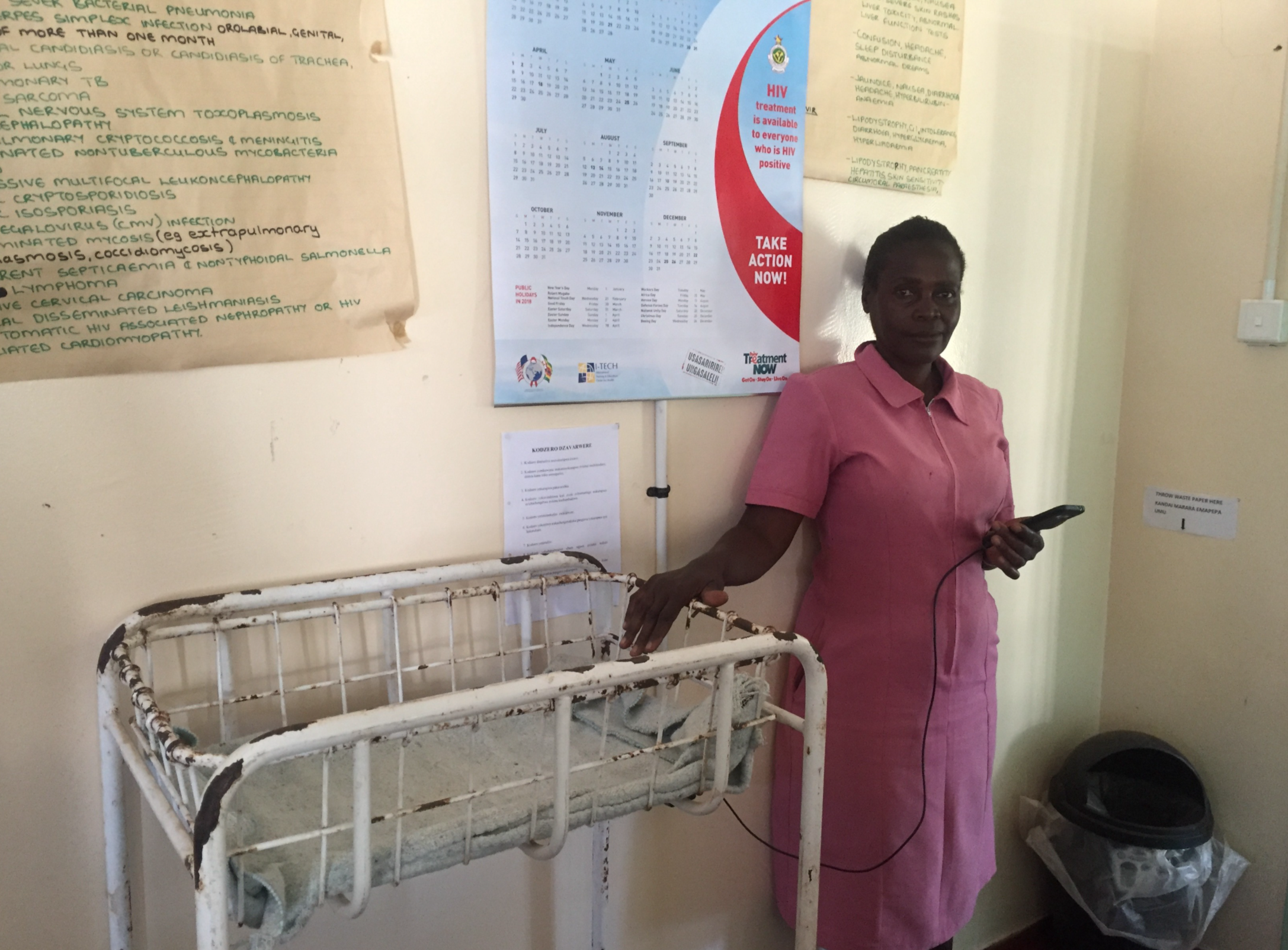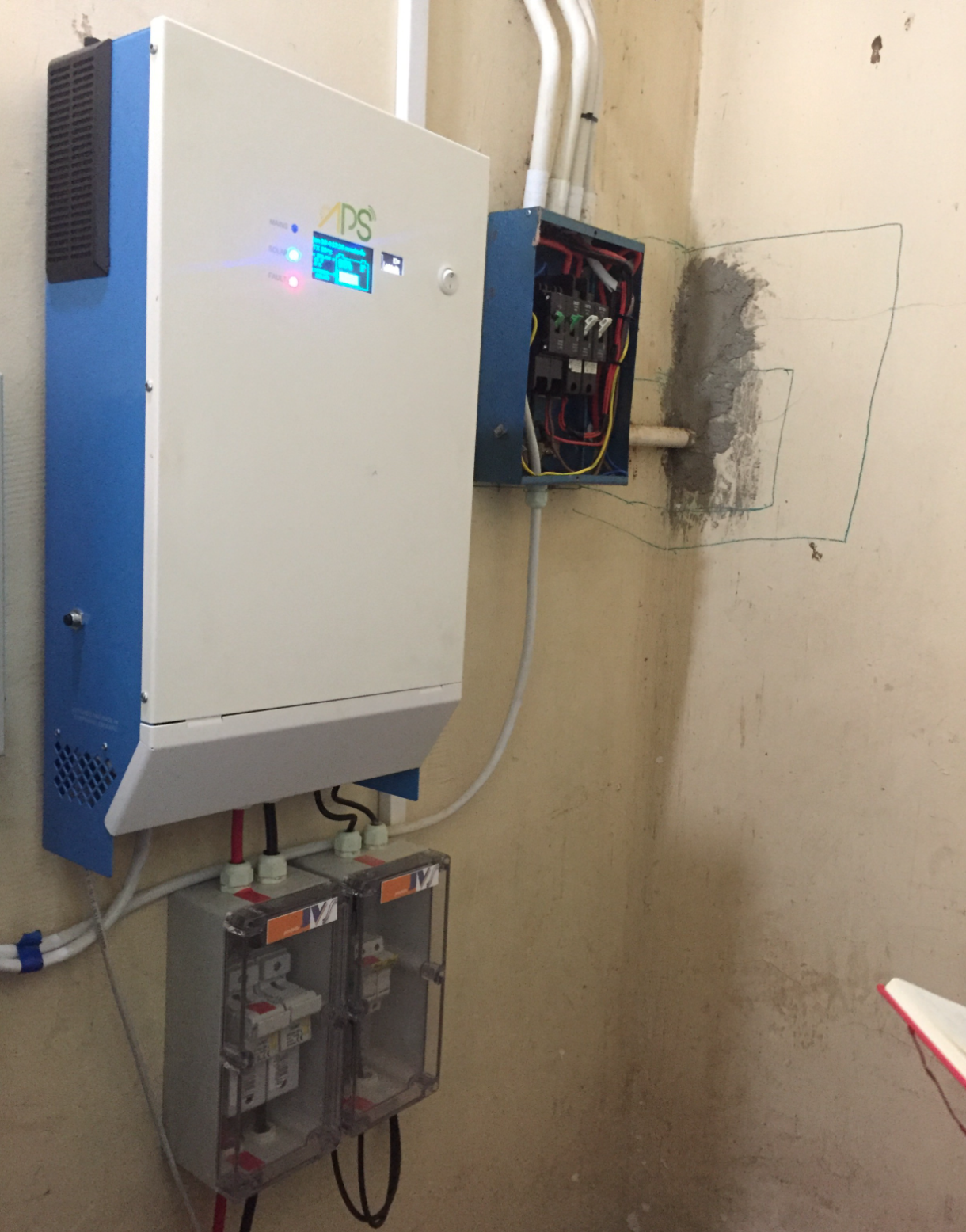Smart Solar Batteries for Healthcare in Rural Zimbabwe
Can ‘smart’ (IoT connected) solar energy systems provide reliable energy to health clinics in rural Zimbabwe?
LOCATION | Zimbabwe
SECTOR | Health
TECH | Internet of Things (IoT)
TIMELINE | January 2017 - November 2020
PARTNERS | Crown Agents, JVS Projects, Sunergy Solar, Distributed Power Africa, Higher Life Foundation
The Challenge
Zimbabwe’s national electricity coverage rate is 40%, but for the majority of Zimbabweans who live in rural areas the coverage is 21%. Even for those who have access to electricity, there are frequent power cuts. Infrequent energy poses a significant problem for health clinics, who often have to close when the sun sets due to lack of electricity, causing emergency out-of-hours operations and safe storage of medicines to be compromised. Solar energy is a potential alternative source of energy for sub-Saharan Africa, but maintenance and cost remain barriers for widespread uptake.
The Idea
Smart Solar Batteries integrate IoT technology into solar energy systems addressing the main barriers of maintenance and cost through ‘real time’ alerts of maintenance issues and accurate, unmediated data on power consumption to enable more intelligent design of systems and utilisation of power. This pilot provided IoT connected solar energy systems to health facilities in rural Zimbabwe to test if the system would increase the services the health facility could provide and improve health outcomes for patients.
The Scaling Journey
What we learned
Typically, international development projects maximise value-for-money and install as many solar energy systems as possible. This pilot only installed four energy systems, which allowed us to learn much more at each point in the end-to-end process. It is important to maximise learnings throughout the process so we could try to iterate the service and make it as impactful as possible.
The solar energy systems created a surplus of energy, allowing for the lights to stay on in the facilities 24/7 and enabled medical staff to use the energy for personal use, such as charging their mobile phones. The 24hr lighted increased out-of-hours procedures (mainly deliveries) by 10-fold and patients had peace of mind knowing they could receive safe care when they needed it.
The solar energy systems proved to be immediately impactful and remained operational for years with relatively little maintenance required for their upkeep.
Local expertise and a diverse team proved to be invaluable in overcoming the several hurdles the pilot faced in importing technology and implementing and monitoring this technology in extremely remote areas.
A key benefit of the IoT system is that maintenance needs can be diagnosed in real time. Large parts of Zimbabwe do not have 3G connectivity, meaning that data can not be transmitted in real time.
All photos on this page were taken by the pilot’s implementing partners, Crown Agents, JVS Partners, Sunergy Solar, Distributed Power Africa and Higher Life Foundation. What happened next?
The systems were still functional more than two years after their installation.
Read more
Read the pilot’s key learnings — “For Learning, More is More”
Read notes & watch videos from the field in Zambia — Notes from the field



